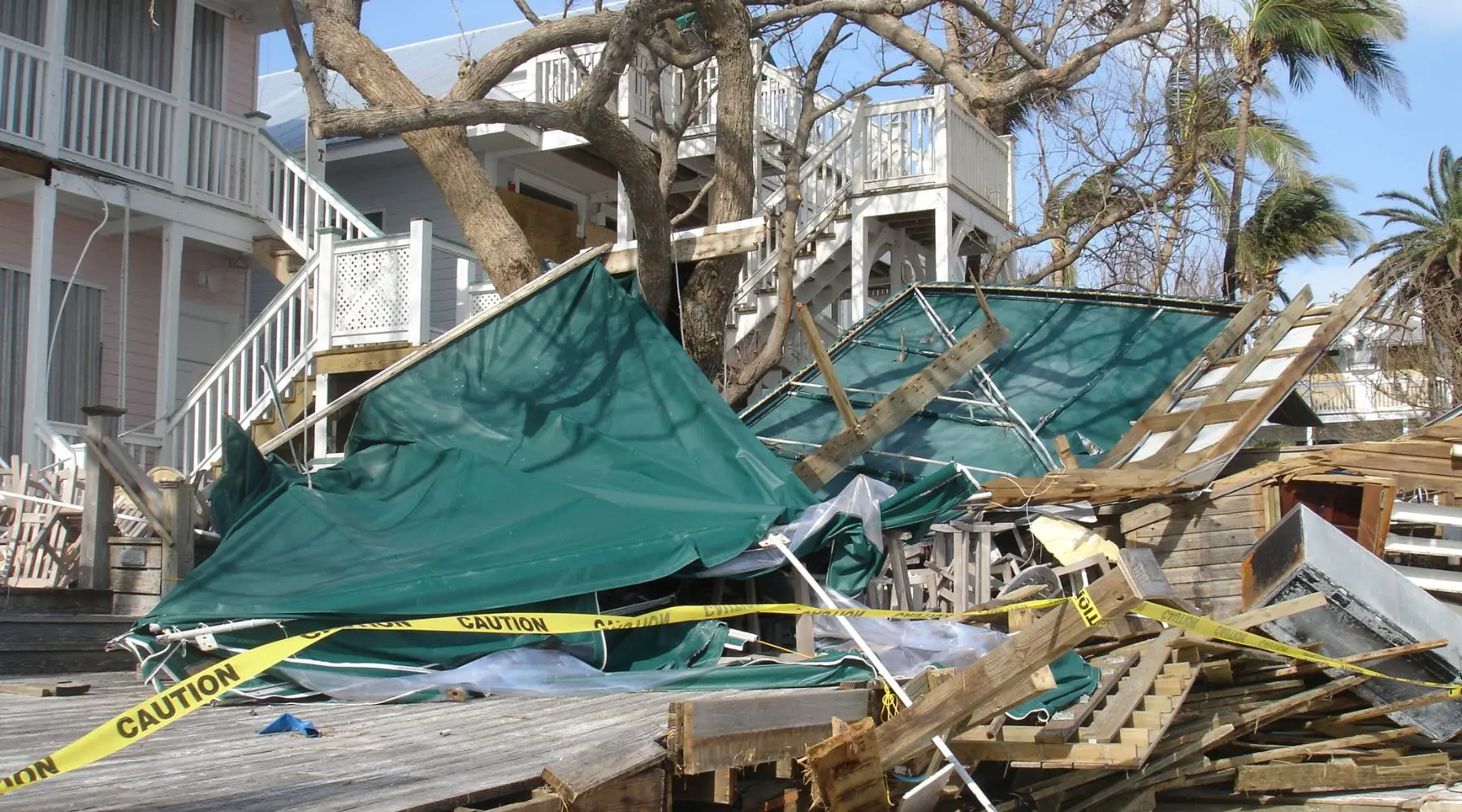Mother nature is jacking up your insurance premiums. And she’s not finished yet.

Aussies are finding it tougher than ever to keep up with home insurance bills as Mother Nature ramps up the pressure - according to a new report from the Actuaries Institute.
Life is getting harder - and we can prove it. Over 1.6 million homes are under affordability stress in 2024, which is up by almost one third from the previous year.
In just the last year, median insurance premiums have jumped 9%.
And if mother nature keeps throwing a tantrum, lead author Sharanjit Paddam sees no end in sight.
This is because increases in premiums are outpacing wages growth. Unfortunately, we expect this will continue because of the overall increasing risk of natural disasters associated with climate change, which will continue to put upward pressure on premiums.
Homes are on the line
As home insurance gets more expensive for Australia's $2.3 trillion home market, many could be left underinsured or without coverage. And with extreme weather conditions as a looming threat, Paddam suggests more than few Aussies could be in for a rude awakening.
"These 180,000 households with home insurance affordability stress represent about $57 billion worth of home loans. If their home is damaged by a natural disaster and they either don't have insurance or are underinsured they could find themselves in a stressful financial situation.
5% of Aussies with mortgages already experience affordability stress with insuring their home and they've seen their average premium more than doubled since 2023.
While it's not a one-to-one reason, it's easy to draw a line between severe weather events and the most dramatic premium increases we've seen.
Homes in the top 5% of highest premiums - typically because of floods and cyclones - have already seen their premiums shoot up by more than 30% in the last year.
And for the 5% of Aussie mortgage holders who already experience home insurance affordability stress, average premiums have jumped more than double to $5216 per year.
A perfect storm on two fronts
It's not just literal storms! Homes in high-risk areas are expected to battle rapidly changing insurance policies along with the forces of nature.
After a whirlwind year of cyclones and floods hitting Southern Queensland, NSW's Northern Rivers, Regional Western Australia and the Northern Territory - Peta Taylor - insurance expert at Finder - says policymakers are wising up to climate change.
There's a perfect storm for Australian insurers right now. Inflation is jacking up the cost of repairs and rehousing, reinsurance prices are climbing, and climate change is weighing heavily on the minds of insurers. Unfortunately, it's the customers who are left holding the bag.
Playing the blame game
While the alarm bells are ringing for customers - especially in hard-hit areas- experts are divided on who's to blame and how to fix this mess.
The institute's report throws a few ideas in the ring including heavy investment from state governments into social housing and developing housing resilience to disasters, to protect homeowners if things take a turn for the worst.
But Greens party senator Senator Mehreen Furqi from the Greens party, says the responsibility lies within the fossil companies to curb the acceleration of climate change.
The first step to tackling skyrocketing insurance premiums to stop fuelling the fire.
Shots have been thrown by Joseph Mitchell - assistant secretary of the Australian Council of Trade Unions - who sees the rise in premiums as an exploitation of customers.
They have increased premiums well above costs to post record profits, using the same price gouging formula as other major businesses coming out of the pandemic.
Ouch.
It's not all doom and gloom
While the top end decisions are out of the hands of regular Australians, it's important to focus on what you can do to save money on home insurance.
One of the best tricks to snag a better deal is to regularly shop around for coverage options. It's very easy to compare home insurance with Finder, but it's also valuable to have a look at your current policy to make sure your needs are being met. This way, you can ensure things tick all your boxes when exploring other options.
Sources
Ask a question
